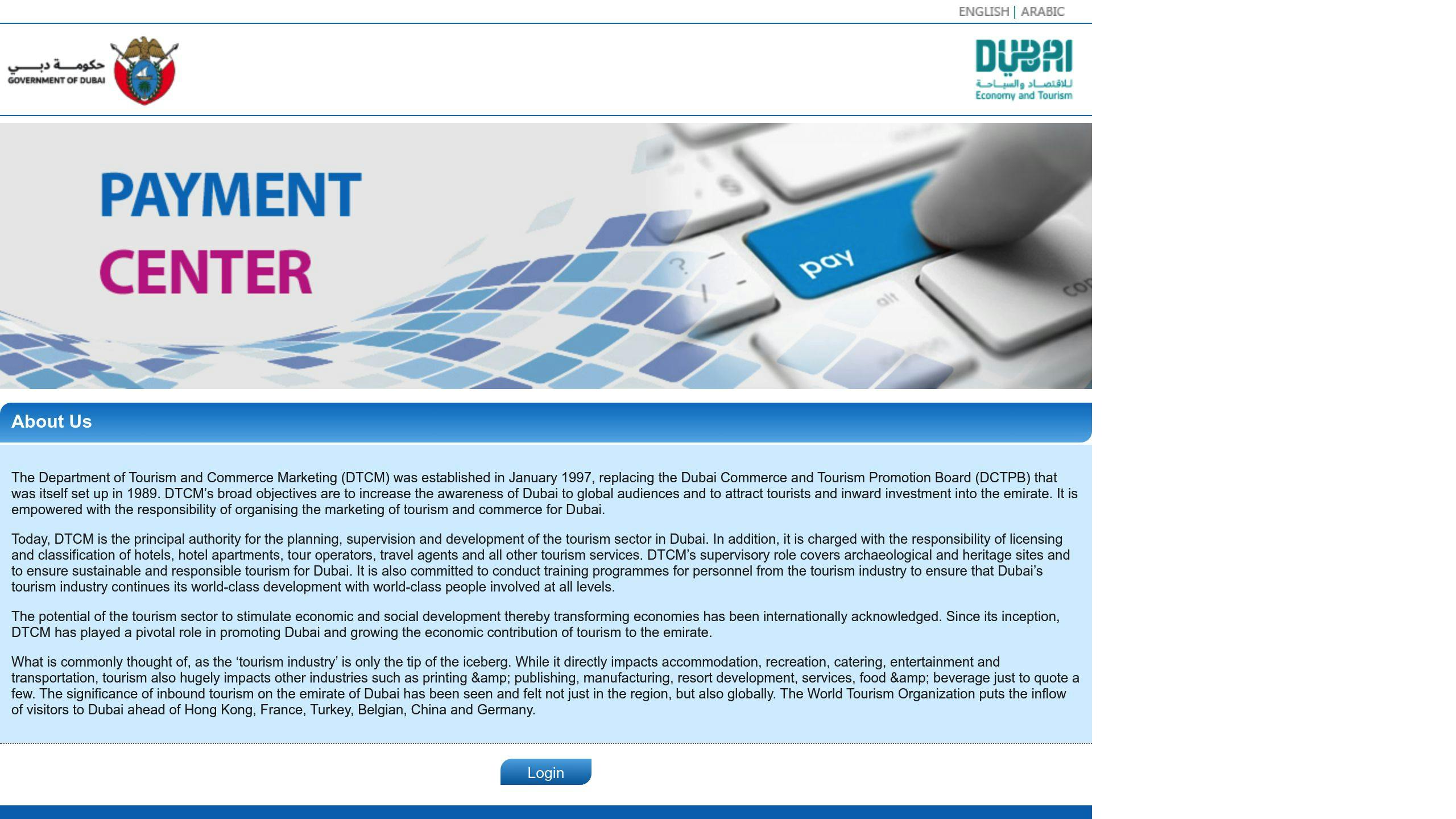Dubai has strict rules for short-term rental marketing, managed by the Department of Tourism and Commerce Marketing (DTCM). To legally market your property, you need a DTCM license, accurate listings, and compliance with regulations. Violations can result in fines up to AED 5,000. Key steps include:
- Register your property: Submit documents like a title deed and DEWA bill.
- Obtain a DTCM license: Costs range from AED 370 to AED 1,200 based on property size.
- Follow listing rules: Display the license number, use approved platforms, and ensure all details are accurate.
Important compliance points:
- Only entire properties can be rented (no shared spaces).
- Hotel apartments are not eligible for holiday home permits.
- Collect and submit the Tourism Dirham Fee (AED 10–15 per bedroom per night).
Platforms like StayHub can simplify compliance and marketing. Staying compliant not only avoids fines but also builds guest trust and ensures long-term success.
Essential Tips to License your Dubai Holiday Rental
Dubai’s Short-Term Rental Regulations
Dubai has established clear rules for short-term rentals to maintain high standards. These include strict property eligibility criteria, oversight by the Department of Tourism and Commerce Marketing (DTCM), and mandatory licensing procedures.
The Dubai Holiday Home Market
Dubai’s holiday home market operates under a structured framework to protect its reputation for luxury stays. Individuals can hold licenses for up to 8 properties, while managing more requires a commercial trade license [1][2]. To qualify for holiday home permits, villas must either be in gated communities with at least 4 units or located on main roads [1][3]. The DTCM ensures these rules are followed, playing a key role in compliance across the sector.
Role of the Department of Tourism and Commerce Marketing (DTCM)

The DTCM is responsible for managing licenses, conducting inspections, enforcing guest check-in rules, monitoring property standards, and collecting the monthly Tourism Dirham Fee. Hosts must report guest arrivals within 3 hours through the DTCM system, including uploading passport or Emirates ID details. The Tourism Dirham Fee, which ranges from AED 10 to 15 per bedroom per night, must be collected and submitted monthly [1].
Licensing and Penalties
Obtaining a license involves a one-time registration fee of AED 1,520, permit fees ranging from AED 370 to 1,200 depending on unit size, and annual renewals with updated documentation [1]. Tenants interested in subletting must meet specific conditions, including obtaining a no-objection certificate from the property owner. They are allowed to sublease only one unit at a time [1].
Key compliance requirements include:
- Keeping documentation up to date
- Paying the monthly Tourism Dirham Fee on time
- Adhering to property standards set by the DTCM
- Accurately representing properties in marketing
- Reporting guest registrations promptly
Platforms like StayHub can simplify the process for property owners, helping them manage operations while staying compliant with regulations.
Marketing Short-Term Rentals Legally
Marketing short-term rentals in Dubai comes with strict rules set by the Department of Tourism and Commerce Marketing (DTCM). Property owners must follow these regulations to stay compliant and avoid fines.
DTCM Advertising Rules
The DTCM mandates that all short-term rental ads must clearly display the license number and be listed on approved platforms like Airbnb, Booking.com, and Expedia [1]. Advertising on unapproved platforms can lead to hefty penalties [2]. Additionally, the DTCM has detailed requirements for the content of property listings.
Listing Requirements
Short-term rental listings must include:
- DTCM license number
- Accurate property details: size, classification, and number of bedrooms
- Updated photos and a full list of amenities
- Precise location details and neighborhood information
The DTCM actively checks listings for compliance. Tools like StayHub’s property management system can simplify this process by automating updates across platforms and ensuring all required details are included.
Avoiding False Claims
The DTCM enforces strict rules against false advertising. Property owners must ensure their listings truthfully represent the condition and features of their property.
| Aspect | Requirements | Common Violations to Avoid |
|---|---|---|
| Location | Exact neighborhood and proximity to landmarks | Misleading claims about proximity |
| Amenities | List only features currently available | Advertising amenities that don’t exist |
| Property Size | Accurate square footage and room count | Exaggerating property dimensions |
| Views | Actual views from the specific unit | Using photos that misrepresent views |
Accurate marketing not only keeps you compliant but also helps build trust with guests, which is key to long-term success. Many property owners turn to specialized property management tools to streamline updates and ensure their listings meet DTCM standards [1][2].
sbb-itb-9849306
Digital Marketing Strategies and Legal Compliance
To thrive in Dubai’s competitive short-term rental market, property managers need to combine smart digital marketing tactics with strict compliance to DTCM regulations.
Approved Platforms for Listings
The DTCM works with specific platforms for short-term rental listings, each with its own set of rules. Here’s a quick breakdown:
| Platform | Key Requirements |
|---|---|
| Airbnb | Display DTCM permit, maintain accurate pricing |
| Booking.com | Verify property details, include license number |
| Expedia | Update availability in real-time, show permit |
Consistency is key – property managers must ensure the same accurate information is displayed across all approved platforms to avoid regulatory problems. Alongside these platforms, compliance also extends to other marketing channels like social media and email.
Social Media and Email Marketing Rules
When using social media or email for marketing, property managers must follow Dubai’s data privacy laws. This includes getting explicit consent for using customer data, offering opt-out options, and always displaying the DTCM permit number in promotional materials.
SEO and Legal Compliance
SEO efforts should focus on using accurate, location-specific keywords, providing honest descriptions of property features, and naturally incorporating the DTCM permit number. This not only boosts search rankings but also ensures compliance. Tools like StayHub can simplify this process by automating compliance checks across platforms, ensuring all content adheres to DTCM standards.
“Property managers must stay informed about these changes and adjust their marketing strategies accordingly to ensure compliance”, says a DTCM representative, highlighting the need to align marketing efforts with the latest regulations.
Using Property Management Tools for Marketing
Managing short-term rentals in Dubai demands tools that simplify marketing efforts while ensuring legal compliance. Property management platforms have become a go-to solution for tackling these challenges effectively.
How Technology Supports Marketing and Compliance
Platforms like StayHub show how advanced tools can make compliance easier and boost marketing in Dubai’s competitive rental market. These platforms combine features tailored to the specific needs of short-term rental managers in the region:
| Feature | Benefits |
|---|---|
| Dynamic Pricing | Adjusts rates based on market demand, ensuring fair and competitive pricing |
| Automated Listings | Syncs property details across multiple platforms and includes DTCM permit numbers |
| Guest Communication | Simplifies responses to bookings and tracks necessary guest documentation |
| Performance Analytics | Tracks performance metrics and generates reports for regulatory compliance |
For example, StayHub’s dynamic pricing feature has helped property managers boost revenue by 20% during peak seasons, all while staying compliant with local regulations. Automated tools also ensure consistent branding and adherence to Dubai’s advertising rules.
Modern SaaS tools are centralizing operations for property managers. Booking and channel management systems make it easier to handle reservations, ensure proper permit display, and create compliance reports. Analytics dashboards and virtual assistants further enhance operations by streamlining guest communication and ensuring alignment with DTCM standards.
Specialized features, such as automated DTCM permit integration and built-in compliance checks for marketing materials, make these platforms essential for property managers. They help maximize marketing efforts while keeping everything in line with Dubai’s strict regulatory requirements.
Conclusion: Marketing Short-Term Rentals in Dubai
Marketing short-term rentals in Dubai requires a combination of smart strategies and strict compliance with local regulations. The Department of Tourism and Commerce Marketing (DTCM) has set clear rules that govern how properties can be marketed and operated. Obtaining the proper licenses – and renewing them annually – is a must for anyone participating in this market.
Modern technology, like property management platforms, makes it easier to meet these requirements. These tools can automate tasks such as integrating permits and managing guest records, helping property owners stay compliant without extra hassle.
Here are some essential compliance steps to follow:
- Ensure all listings display the DTCM permit number.
- Maintain high property quality and safety standards.
- Use approved platforms with accurate property details.
- Keep guest records and certifications up to date.
Technology isn’t just about compliance – it also boosts marketing efforts. Property management platforms can help with:
- Automated Compliance: Making sure listings meet DTCM rules.
- Flexible Marketing: Adapting strategies to match market trends.
- Record Management: Keeping all necessary documents organized.
- Performance Insights: Tracking how well your marketing is working.
Dubai’s holiday home market is constantly evolving, with the DTCM stepping up enforcement to maintain quality standards [1]. Staying updated on regulatory changes and using professional tools is key to thriving in this competitive space.
“Success in Dubai’s rental market depends on following DTCM rules and using compliant marketing strategies” [2].
FAQs
Are short-term rentals allowed in Dubai?
Yes, you can legally offer short-term rentals in Dubai, but there are specific rules set by the Department of Tourism and Commerce Marketing (DTCM) that you need to follow. Here are the main requirements:
| Requirement | Details |
|---|---|
| Property Usage | Only entire properties can be rented; shared accommodations are not allowed. |
| Standards | Properties must meet DTCM’s quality, safety, and amenity guidelines. |
| Registration | A valid DTCM permit is mandatory. |
| Licensing | Fees depend on the property size, as defined by the DTCM. |
To stay compliant, you must register guests within 3 hours of their arrival, renew licenses yearly, collect the Tourism Dirham fee (AED 15 per bedroom per night), and pay 5% VAT on your rental income.
Tools like StayHub make it easier to manage these requirements by automating tasks like document handling, guest registration, and monitoring safety standards. Following DTCM regulations not only helps you avoid fines but also boosts your property’s appeal to potential guests by building trust and credibility.
Related Blog Posts
- 7 Essential Property Management Tools for Dubai Rentals
- Airbnb vs Booking.com: Which Channel Drives More Revenue?
- Health Standards for Dubai Rentals: Key Rules




